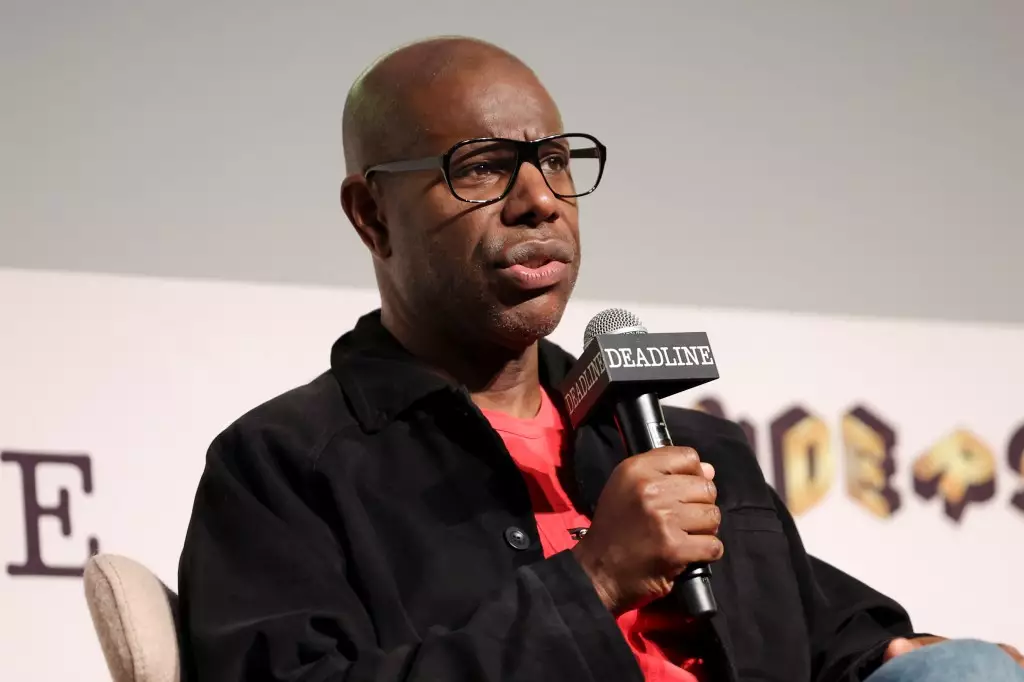In the annals of film history, World War II has been depicted countless times, each rendition providing its own interpretation and emotional depth to a harrowing chapter in human existence. Yet, even after over eighty years, filmmakers continue to explore new angles, each more poignant than the last. One such innovative perspective comes from Oscar-winning director Steve McQueen in his latest project, “Blitz.” This film takes a fresh approach by centering the narrative around a child, allowing audiences to witness the complexities of war through the pure yet tumultuous lens of innocence.
McQueen’s focus on a young protagonist, George, a 9-year-old navigating the tumult of World War II London, evokes significant emotional responses. The director highlights that childhood innocence serves as a prism through which the horrors of conflict become vividly apparent. As McQueen reflects on his daughter’s wonderment at the world, he emphasizes the disconnect that often occurs as adults lose their childlike curiosity. His commentary invites viewers to reassess their perceptions, urging them to consider how the inevitable compromises of adult life dull one’s empathy and awareness.
The narrative unfolds as George is sent away from his mother, Rita, played by Saoirse Ronan, in a desperate attempt to secure his safety amidst the relentless bombings of London. Rather than docilely accepting his fate, George’s determination to return home ignites a spirited adventure. This conflict not only presents a physical journey but symbolizes the internal battles faced by children in distressing circumstances. George’s flight from the safety of the countryside back to his family is heavily laden with peril, representing the broader emotional turmoil and resilience that often characterize childhood during wars.
Through this portrayal, McQueen successfully sheds light on a lesser-known aspect of wartime narratives: the experiences of children. By tapping into the potent emotional landscapes of innocence and adventure, “Blitz” endeavors to make viewers rethink what they know about conflict. It is a story of love, longing, and the boundless spirit of youth in the face of adversity, a theme that tends to get overshadowed by the more prominent, adult-centric tales of war.
To breathe life into the characters and ensure the depiction of wartime society is authentic, Saoirse Ronan undertook the task of mastering the Cockney accent under the tutelage of a dialect coach. This commitment to authenticity not only enriches her portrayal of a mother in distress but also serves to connect the audience to the authentic soundscape of East London during the 1940s. Ronan’s reflections on the accent illustrate that the working-class dialect from that era carries intrinsic societal nuances that are often overlooked.
The dialect work not only serves character authenticity but also reflects a broader narrative surrounding representation and history. The way these characters communicate—inflected with a vintage quality—creates a bridge to the past, allowing contemporary viewers to engage with a reality that is otherwise distant. The nuances of accent and behavior, coupled with a compelling narrative, invite audiences to dive deeper into the human experience during wartime and reminisce about the strength and resilience of people striving to preserve their dignity amidst chaos.
In “Blitz,” Steve McQueen does more than recount the events of World War II; he recontextualizes them within the lens of childhood, offering a fresh perspective that resonates with contemporary audiences. The film is an invitation, not merely to watch but to feel, to understand, and perhaps most importantly, to remember. By centering the narrative on a child’s journey, McQueen revives our sense of wonder and compassion, reminding us that amidst the destruction of war, the innocence and determination of youth remain powerful forces. As film continues to evolve, “Blitz” serves as a poignant reminder that even the darkest of times can yield narratives rich with hope and resilience, waiting to be discovered anew.



Leave a Reply